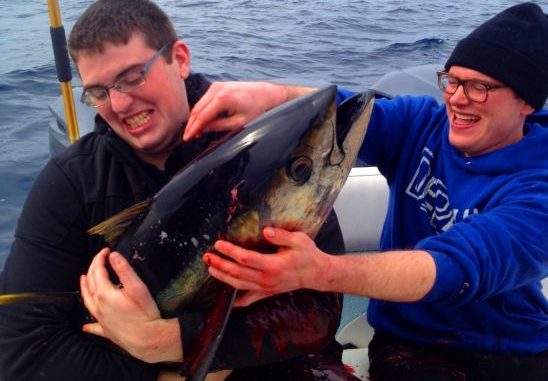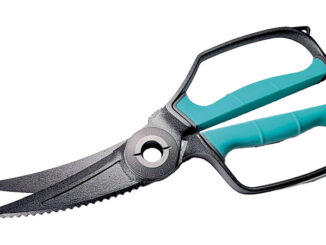
Program requires permits for tuna, snapper, billfish, amberjack, other offshore fish.
A newly launched program requires all recreational offshore anglers to be permitted to catch tuna, billfish, swordfish, amberjacks, groupers and snappers — and to report all catches of yellowfin tuna, the Louisiana Department of Wildlife & Fisheries announced last week.
The goal of the mandatory but free offshore landing permits is to provide more-accurate records of yellow fin tuna landings to help LDWF biologists better manage the fisheries, the agency said.
“In order to properly manage yellowfin tuna, LDWF needs more data on this important fishery, “LDWF’s Jason Adriance said. “LDWF is not comfortable with the current methods … providing recreational harvest estimates for yellowfin tuna, as there is a large amount of error associated with those data. These new data-collection methods will give us more-accurate and timely data to manage this important fishery in Louisiana.
“The new regulations do not involve commercial fishermen — only recreational fishermen, whether private or charter.”
The permit is free to the public, and can be obtained by clicking here or through smartphone applications, according to the LDWF.
“We have designed a system that is as easy as possible to use by providing multiple options via a Web site, mobile applications and a toll-free number for folks to choose from when obtaining a free permit and when reporting landings,” Adriance said.
While all offshore anglers are required to have permit, they must report only the catches of yellowfin tuna, LDWF’s Harry Blanchet told Louisiana Sportsman.
“If you’re heading south in the big, blue water, have one of these (permits),” Blanchet said. “If you catch a yellowfin, call it in.”
Anglers can report yellowfin catches by calling 877-792-3440, by using free iPhone and Android apps, or by logging onto the LDWF Web site.
The Web page for the program was under construction today (Jan. 2), but Blanchet said he hoped it will be completed soon.
Charter captains are responsible for reporting the catches aboard their boats, Blanchet said. Guides must report their landings by the 15th of the month following the catch of a yellowfin tuna.
That concerned one Venice charter guide, who said he wanted to ensure he had access to enough permits to satisfy the catches of his clients.
“I will always be in favor of improving the fisheries in the Gulf of Mexico,” Capt. Kevin Beach said. “I will always comply to the fullest letter of the law, but I need to be fronted at least 150 tags for tuna, and the method of delivery needs to be efficient. If they front me a couple hundred tags, it will be OK because on a weekend with a good bite I’ll catch more than 50 tuna.
“If I can’t get enough tags or get them delivered fast enough, it will put me in a pinch because I would have to call customers and tell them that we can’t fish on a Saturday or Sunday because I can’t get the tags.”
Blanchet said that shouldn’t be a real issue because the program is designed to accommodate charter businesses.
“Charter captains have an option: If they follow the rules, they will be able to obtain tags for their boats,” he said. “The rules say to report fish before offloading; charter captains say, ‘This is an undue burden because we have so many fish — give us another option.’ They were given an option of doing a tag — an individually numbered unique id. Basically the charter captain is responsible for recording for his clients.”
These tags, which will be available at the LDWF’s Baton Rouge headquarters and regional offices, would replace individual permits.
Beach also voiced his concern about potential technical difficulties like power outages or trouble with phone service, wondering if he would be fined in these instances for not reporting his catch in a timely manner.
Information on the program and reporting requirements can be found at the department’s Web site or by calling Jason Adriance at 504-284-2032.
The department also will hold three workshops explaining reporting requirements and the use of the new technology, LDWF said. These workshops will be held in the following locations beginning at 5:30 p.m.:
• Jan. 15 — LDWF Fisheries Research Lab, 195 Ludwig Annex, Grand Isle, La.
• Jan. 16 — Belle Chasse Auditorium, 8398 Highway 23, Belle Chasse, La.
• Jan. 17 — Houma Municipal Auditorium, 880 Verret Street. Houma, La.


